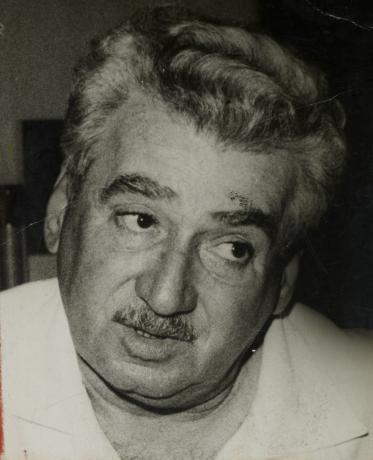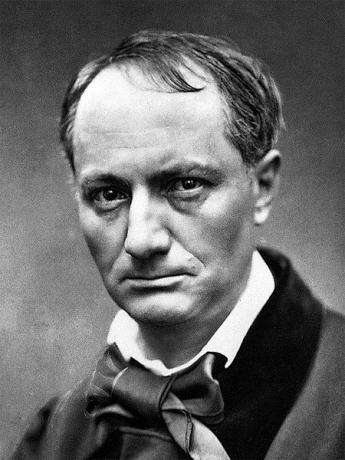THE Poetry of 30 represents a set of poetic works produced in Brazil during the second modernist generation (1930-1945).
Called "Geração de 30", this period is considered one of the best moments in Brazilian poetry, marked by a period of maturity for writers.
At that time, modern ideals were already consolidated and that is why it is also called the "consolidation phase".
Poetry Summary of 30
Modernism was an artistic movement of rupture with radicalism and excess as its main characteristics.
In Brazil, the modernist movement emerged with the Semana de Arte Moderna, held in 1922. Thus, the first modernist generation begins in 1922 and ends in 1930.
At second phase of modernism, the authors abandon the spirit of the first phase. Thus, they seek to demonstrate greater rationality and questioning, to the detriment of the destructive spirit, characteristic of the beginning of the movement.
Thus, the poetry of 30 presents a wide range of themes: social, historical, cultural, philosophical, religious, everyday.
One of the most important features of this phase was formal freedom. Poets wrote with free verse (no meter) and blank verse (no rhyme). All this without abandoning fixed forms, for example, the sonnet (made up of two quartets and two triplets).
In addition to poetry, the novel of 30 was also of great importance in the period.
Characteristics of the poetry of 30
The main features of the poetry of 30 are:
- Formal freedom;
- Aesthetic experimentation;
- Use of white and free verses;
- Universalism;
- Irony and humor;
- Regionalism and colloquialism;
- Rejection of academicism.
The poets and poetry of 30
Below are the main Brazilian poets of that period and some of their poetry:
1. Carlos Drummond de Andrade (1902-1987)
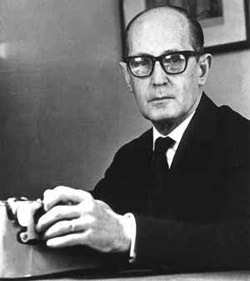
Seven Faces Poem
When I was born, a crooked angel
of those who live in the shade
said: Go, Carlos! be gauche in life.
houses spy on men
who run after women.
The afternoon might be blue,
there weren't so many desires.
The tram passes by full of legs:
yellow black white legs.
Why so much leg, my God, asks my heart.
but my eyes
don't ask anything.
the man behind the mustache
is serious, simple and strong.
Almost no conversation.
have few, rare friends
the man behind the glasses and mustache.
My God, why did you abandon me?
if you knew I wasn't god
if you knew I was weak.
world wide world world,
if i was called Raimundo
it would be a rhyme, it would not be a solution.
world wide world world,
wider is my heart.
I shouldn't tell you
but this moon
but this brandy
they get us moved as the devil.
Read more about the writer: Carlos Drummond de Andrade.
2. Cecília Meireles (1901-1964)

Reason
I sing because the moment exists
and my life is complete.
I'm not happy nor am I sad:
I'm a poet.
Brother of elusive things,
I don't feel joy or torment.
I go through nights and days
in the wind.
If it collapses or builds up,
if I remain or if I fall apart,
- I do not know I do not know. I don't know if I stay
or step.
I know what I sing. And the song is everything.
The rhythmic wing has eternal blood.
And one day I know I'll be mute:
- nothing more.
Learn more about the writer Cecília Meireles.
3. Murilo Mendes (1901-1975)
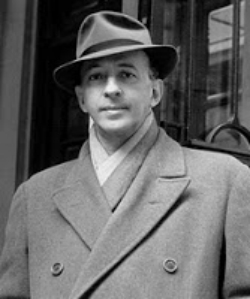
spiritual poem
I feel like a fragment of God
As I am a remnant of root
A little water from the seas
The stray arm of a constellation.
Matter thinks by order of God,
It transforms and evolves by order of God.
The varied and beautiful material
It is one of the visible forms of the invisible.
Christ, of the children of man, thou art perfect.
In the Church there are legs, breasts, bellies and hair
Everywhere, even on the altars.
There are great forces of matter on land, sea and air
That intertwine and marry reproducing
A thousand versions of divine thoughts.
The matter is strong and absolute
Without it there is no poetry.
Learn more about the poet Murilo Mendes.
4. Jorge de Lima (1893-1953)

that black Fulo (excerpt from poem)
Well, it happened that it arrived
(it's been a long time)
in my grandfather's bangue
a cute black girl,
called black Fulo.
That black Fulo!
That black Fulo!
Oh Fulo! Oh Fulo!
(It was Sinhá's speech)
— Go make my bed
comb my hair,
come help to take
my clothes, Fulo!
That black Fulo!
That black girl Fulo!
stayed soon for maid
to watch over Sinha,
to iron for Mister!
That black Fulo!
That black Fulo!
Oh Fulo! Oh Fulo!
(It was Sinhá's speech)
come help me, O Fulô,
come shake my body
I'm sweaty, Fulo!
come scratch my itch,
come pick me up,
come swing my hammock,
come tell me a story,
I'm sleepy, Fulo!
That black Fulo! (...)
Read more about the life of Jorge de Lima.
5. Mario Quintana (1906-1994)
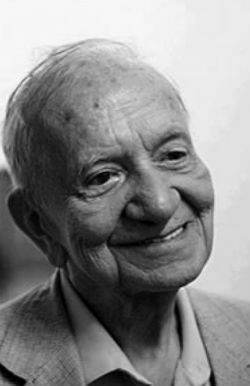
Rua dos Cataventos
The first time they murdered me,
I lost a way of smiling I had.
Then, every time they killed me,
They took something from me.
Today, of my corpses I am
The most naked, the one that has nothing left.
A yellowish candle stub burns,
As the only good that was left to me.
Come! Crows, jackals, highwaymen!
Because from that greedy hand hooks
They will not rip the holy light!
Birds of the night! Horror wings! Fly!
May the flickering light and sad as a woe,
A dead man's light never goes out!
Also read about the life and work of Mario Quintana.
6. Manoel de Barros (1916-2014)
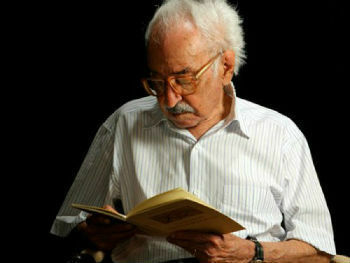
the waste catcher
I use the word to compose my silences.
I don't like the words
tired of informing.
I give more respect
to the ones that live with their bellies on the ground
frog stone water type.
I understand the accent of the waters well
I respect unimportant things
and to unimportant beings.
I appreciate bugs than planes.
I appreciate speed
turtles more than missiles.
I have a birth delay in me.
I was fitted
to like birds.
I have plenty to be happy about it.
My backyard is greater than the world.
I am a waste catcher:
I love the leftovers
like the good flies.
I wanted my voice to have a shape
corner.
Because I'm not computer science:
I'm inventive.
I only use the word to compose my silences.
See also the text about Manoel de Barros.
7. Vinicius de Moraes (1913-1980)

Loyalty Sonnet
I will be attentive to everything my love
Before, and with such zeal, and always, and so much
That even in the face of the greatest charm
Of him my thoughts become more enchanted.
I want to live it in every moment
And in your praise I will spread my song
And laugh my laugh and shed my tears
Your grief or your contentment
And so, when you come to me later
Who knows the death, anguish of those who live
Who knows loneliness, end of those who love
I can tell myself about the love (that I had):
That it is not immortal, since it is flame
But let it be infinite while it lasts.
Learn more about the life and work of Vinicius de Moraes.
Read too:
- Modernism in Brazil
- Romance of 30
- The language of modernism
- Modern and contemporary Brazilian poets
- Authors of the second phase of modernism in Brazil
- Runs on the second modernist generation
- unmissable love poems

